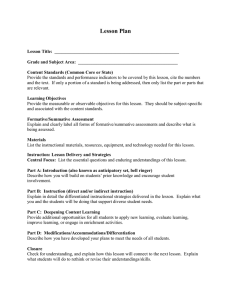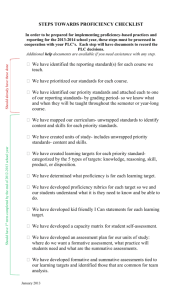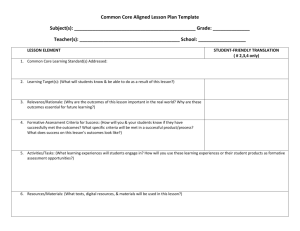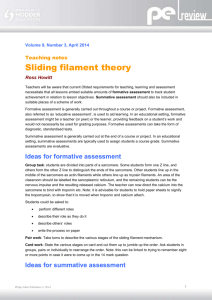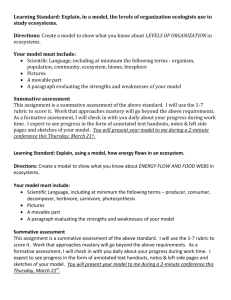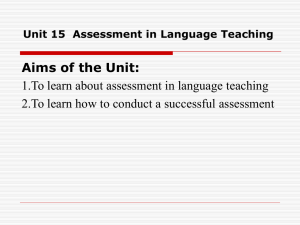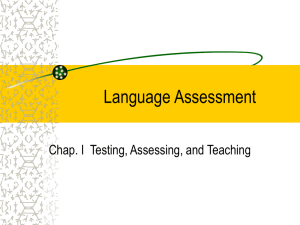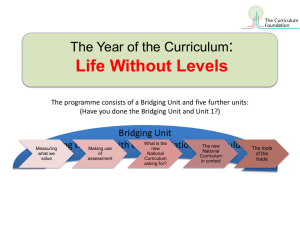A Tool for Planning and Describing Study Lessons
advertisement
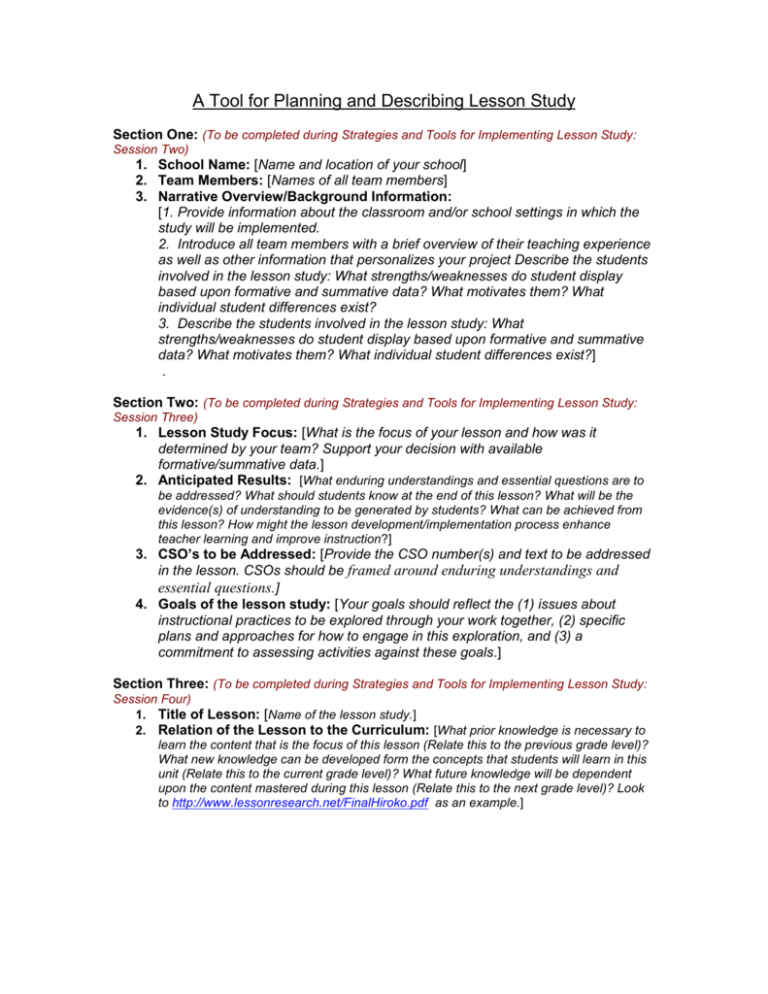
A Tool for Planning and Describing Lesson Study Section One: (To be completed during Strategies and Tools for Implementing Lesson Study: Session Two) 1. School Name: [Name and location of your school] 2. Team Members: [Names of all team members] 3. Narrative Overview/Background Information: [1. Provide information about the classroom and/or school settings in which the study will be implemented. 2. Introduce all team members with a brief overview of their teaching experience as well as other information that personalizes your project Describe the students involved in the lesson study: What strengths/weaknesses do student display based upon formative and summative data? What motivates them? What individual student differences exist? 3. Describe the students involved in the lesson study: What strengths/weaknesses do student display based upon formative and summative data? What motivates them? What individual student differences exist?] . Section Two: (To be completed during Strategies and Tools for Implementing Lesson Study: Session Three) 1. Lesson Study Focus: [What is the focus of your lesson and how was it determined by your team? Support your decision with available formative/summative data.] 2. Anticipated Results: [What enduring understandings and essential questions are to be addressed? What should students know at the end of this lesson? What will be the evidence(s) of understanding to be generated by students? What can be achieved from this lesson? How might the lesson development/implementation process enhance teacher learning and improve instruction?] 3. CSO’s to be Addressed: [Provide the CSO number(s) and text to be addressed in the lesson. CSOs should be framed around enduring understandings and essential questions.] 4. Goals of the lesson study: [Your goals should reflect the (1) issues about instructional practices to be explored through your work together, (2) specific plans and approaches for how to engage in this exploration, and (3) a commitment to assessing activities against these goals.] Section Three: (To be completed during Strategies and Tools for Implementing Lesson Study: Session Four) 1. Title of Lesson: [Name of the lesson study.] 2. Relation of the Lesson to the Curriculum: [What prior knowledge is necessary to learn the content that is the focus of this lesson (Relate this to the previous grade level)? What new knowledge can be developed form the concepts that students will learn in this unit (Relate this to the current grade level)? What future knowledge will be dependent upon the content mastered during this lesson (Relate this to the next grade level)? Look to http://www.lessonresearch.net/FinalHiroko.pdf as an example.] 3. Lesson Study Process: [The following chart describes what you have planned and expect to happen throughout the lesson.] Steps of the Lesson: Learning activities 1. Description 2. Guiding questions 3. Essential Question(s) 4. Goal(s) 5. Time allocation Student Activities Teacher’s Response Assessment of Student Learning Student activities that correspond to the learning activities: 1. Expected Student reaction/respo nses Planned responses to student reactions/responses to activities. Methods by which student learning will be assessed and applied to future learning activities/lesson study iterations. Teacher notesimportant items to be remembered Section Four: Protocols (To be completed during Strategies and Tools for Implementing Lesson Study: Session Five.) Provide copies and/or descriptions of all protocols to be used. Protocols should be included for team meetings, lesson study observations and examining student work. 5. Managing the Process (To be completed during Strategies and Tools for Implementing Lesson Study: Session Six.) [Define a process for conducting the study and working with team members once the study has begun: Schedule: When will the study begin? What is the schedule for the implementation of the study (number of days required per team member? What is the total number of days?) What is the order in which the team members will teach the lesson? Observation: Who will observe the lessons being taught? How will the observations take place? What be the focus of the observation? Do observation tools/forms need to be developed to assist this process? Debriefing: When will the teams meet to debrief after the lesson has been taught? What protocol will be followed? What artifacts of student work are to be discussed? What process will be used to revise the lesson activities, student activities and assessments? Reflection (Group and Individual): How will you “capture” your teams and individual impressions (discussions, concerns, challenges, issues, successes) of the process as it is being implemented?] E. Appendix: [A list of the materials, handouts and student work samples to be gathered as the lesson has been taught.]
